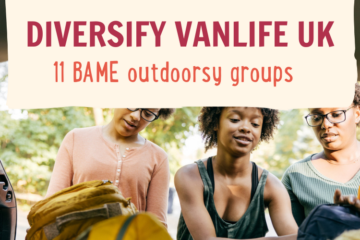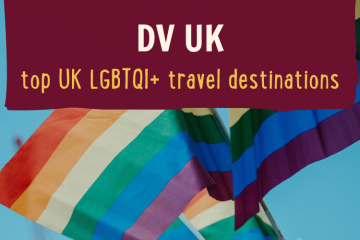Home » Travelling on the Road with Autism
Travelling on the Road with Autism
Diversify Vanlife UK is a safe space for underrepresented people within the vanlife movement. Our aim is to not only amplify voices that have previously been ignored or unheard, but to celebrate them too. This includes people with seen and unseen disabilities who form part of our wonderful community.
This month is Disability Pride Month, a month often overlooked by large brands and members of the public, resulting in a total lack of awareness. This has to change. We’ve sat down with Bianca (thetitinis) to share her journey on travelling with autism and how vanlife has helped her.
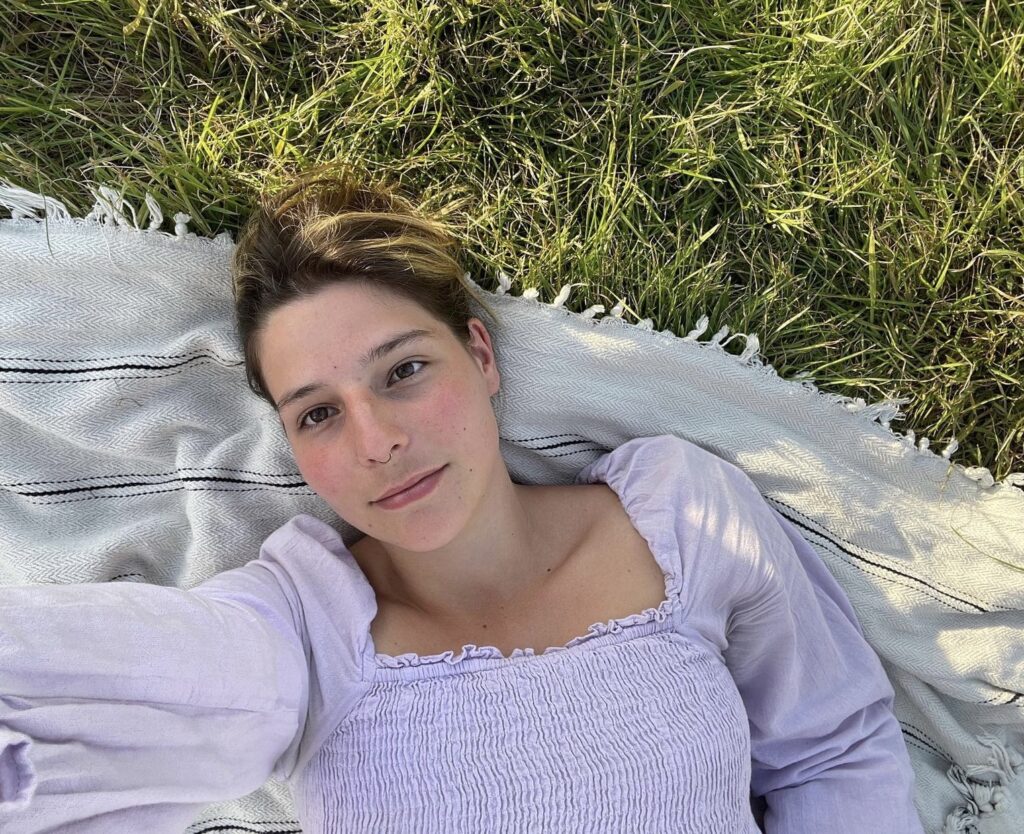
Firstly, we’d love to hear about you and your journey into vanlife?
Hello everyone, my name is Bianca and I’m a 28 years old Italian living in the UK. Growing up I was always obsessed with the idea of a portable home, from Caravans, Yachts and everything in between, I loved the idea of being able to take my little safe space with me anywhere.
My obsession with vanlife specifically started around 5 years ago which is when my partner and I started saving and planning obsessively for our future van. Due to mental health issues & the stress of running a small business during Covid & Brexit, we decided to get our van converted by Vanlife Conversions (which we found on the Quirky Campers converters page.)
Having saved up for a few years, my partner and I were in a really privileged position to get the van of our dreams. It had everything we needed, which I think has made transitioning into vanlife easier for both of us. Currently we alternate between working remotely while being on the road in the UK/mainland Europe and staying near our business’s workshop in Cambridge.
How do you feel about the movement to increase diverse representation in the outdoors?
I think that it’s really great that there is more space for different stories, people and lifestyles. There are two major benefits to representation, the first one is for the people/identities being represented.
Seeing people similar doing the things you love can really help you find tips specific to your needs and show you that specific lifestyle or community is possible/accessible. On the other side it’s really important to reduce stereotypes and educate people on the realities and potential challenges of minorities and oppressed groups.
Absolutely! And what are some challenges you’ve faced travelling on the road?
To be completely honest I think that living in our van in many ways has been better than living in a house for me, especially as we got to do it with our dream van. This provided me with a lot of the tools and comforts to make it easier.
Saying that, I would say the two major things I personally struggle with are:
Safe foods – Finding safe food in different places; especially in different countries as brands, restaurants chains, menus etc will change across different areas. Food is something I struggle with quite a bit as there are a lot of things I can’t eat, so it can be extra stressful when changing country. I constantly have to research finding foods and ingredients that I like or change things up which doesn’t come very easily to me.
Hygiene – I have a lot of sensory issues around having wet skin, which has always made it harder to do things like brushing my teeth, washing my face, washing my hair etc. Because in the van these things require a bit more energy (turning on the water boiler, removing everything from the shower, being careful with water usage etc), I do find that I struggle with it a bit more. The upside is that it’s a lot more acceptable in the vanlife community to not shower super often haha!
That’s really interesting! And what does this community mean to you?
While vanlife does seem very popular online, in real life a lot of people still consider it very strange and don’t understand why people would choose to live in such a small space if they are fortunate enough to have other options.
Personally, the online community has allowed us to connect with people and find amazing friends with similar values; not to mention all the help we had when planning our van conversion, finding the right products and tips for living on the road in specific areas. I find that, depending on the platform, it can be a very helpful community, and even bigger accounts tend to always be very friendly and answer questions from fellow (or future) vanlifers!
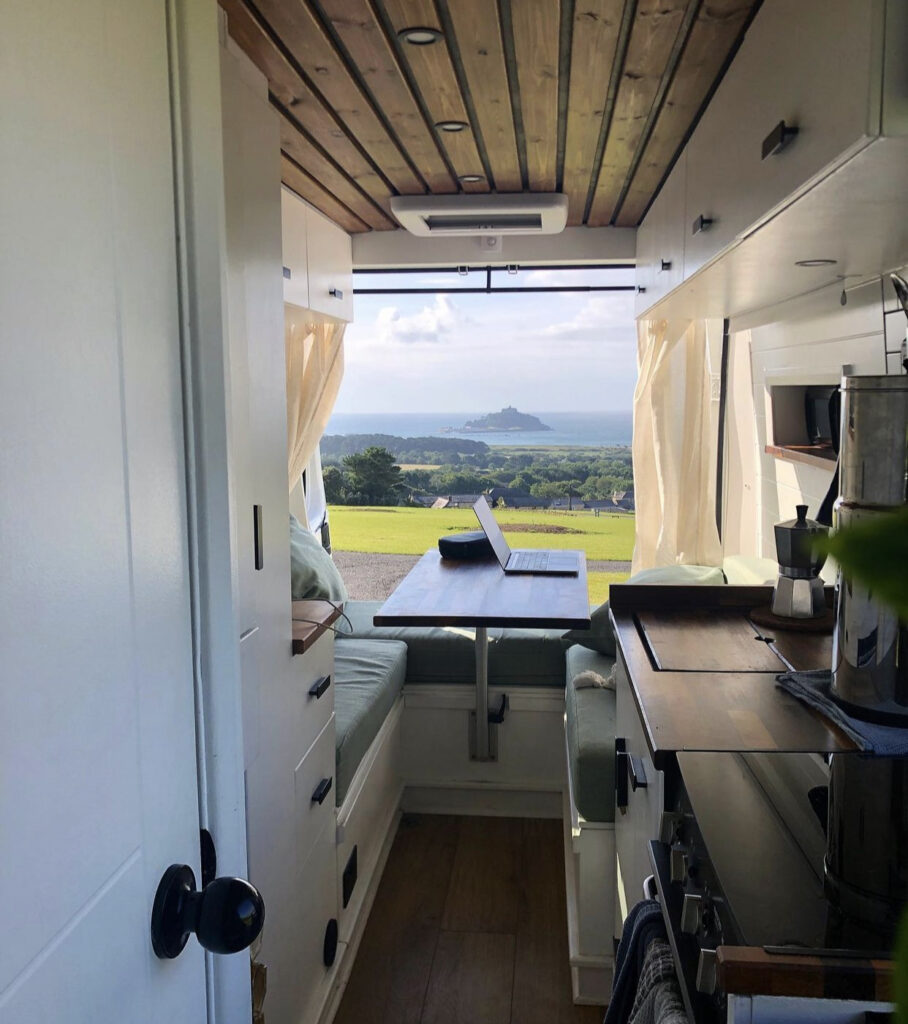
What brings you joy on the road?
Being in nature. Spending most of my time outdoors, even while working and the sense of freedom of going in one direction with no specific plans.
Love that! And what would you say to those who are struggling to be diagnosed or recognised for Autism?
An official diagnosis for some people can be very helpful, as it allows for a certain level of support and validation, however, this isn’t always an option for everyone. It’s unfair that a diagnosis (especially for women, non binary people and POC) is still so inaccessible and there is still so much ignorance even among professionals.
The waiting times are very long and it can be really hard to find people that are up to date with the research, so at times it’s a very long and mentally difficult process.
That said, it’s important to remember that an informed self-diagnosis is valid in the autistic community. If some of the lifestyle adjustments and tips you find for autistic people work for you, then that’s a success whether you’ve had an official diagnosis or not.
If you are based in the UK and you have a hidden disability, I highly suggest looking into the sunflower lanyard scheme, as it can be really helpful and is accessible to those who do not have an official diagnosis
That’s really helpful. And how has vanlife helped you?
I think that living in a van is much better for me for many reasons. The biggest one is that I have my safe space, clothes and food everywhere I go. This means if I’m overwhelmed, feeling hot/cold or struggling to find food that I can eat, I’ll just retreat to my van. It also makes doing activities and visiting places less stressful and more comfortable.
Also the more I spend more time alone in nature, the more my low social battery charges and I’m able nurture my mental health.
I believe vanlife blends together perfectly the need for routine and constancy that stems from being autistic with the need for adventure, change and spontaneity that comes from ADHD.
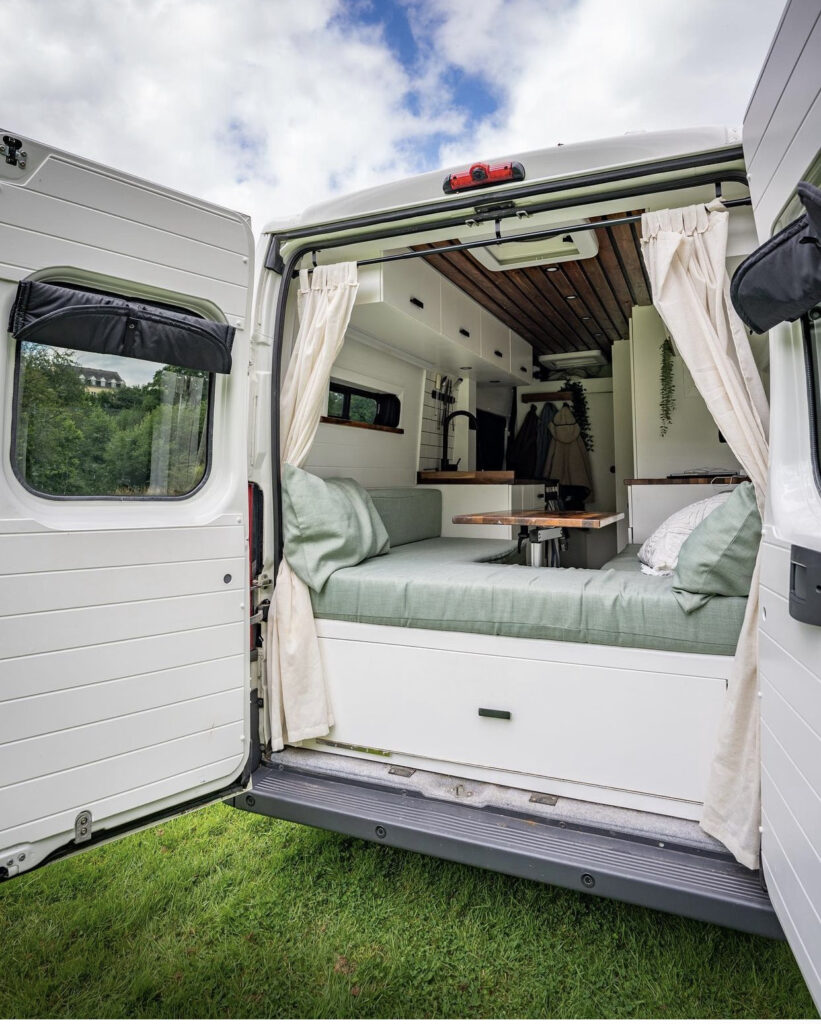
It’s been lovely chatting to you and hearing your story. Is there anything else you want to share with the community?
To raise awareness, I’d like to share some additional information on autism for those that may not be familiar:
- Autism is a neurotype, it’s not a disease and you can’t “get it” from anything, it’s the way in which your brain is developed, and therefore it is from birth.
- The Autism Spectrum Disorder isn’t a linear spectrum that goes from “less autistic” to “more autistic”, instead it can be better represented by a colour wheel. Each autistic person is different and will have different support needs and things they struggle with.
- For this reason in the autistic community most people prefer to talk about different levels of support needs in different areas, instead of talking about being “high” or “low” functioning. There are two main reasons for this, on one side support needs can change over time across the the various support areas, and on the other, the labels high and low functioning have often resulted in lack of support for people that appear more “normal” and infantilisation and lack of independence for people that would be considered “low functioning”. Basically functioning labels are based on how an autistic person affects the allistic (non-autistic) people around them instead of focusing on the needs of the autistic person itself.
- For a similar reason the term “Asperger’s Syndrome” is now an outdated term and is being removed by most diagnostic books worldwide, for example in the UK it hasn’t been used in a few years. Hans Asperger was a was an Austrian that spent most of his career working on autism also in aid of the Nazi regime in the children euthanasia program. And for a long time the Asperger Syndrome diagnosis was basically used as a way to separate “palatable” autistic people from other autistics. So it has a harmful history from many points of view.
- Some autistic people prefer identity first language, this won’t be the case for everyone of course but it is for many. The reasons are that we can’t “remove” being autistic, it’s not an external thing, and there’s nothing wrong with being autistic!
- And if you want to learn more about autism, remember to listen to autistic people’s voices! We’ve been spoken over by problematic organisations and other allistic people for a long time, which contributed to the ableism and stereotypes, but thanks to social media there are lots of amazing individuals educating on autism nowadays!


